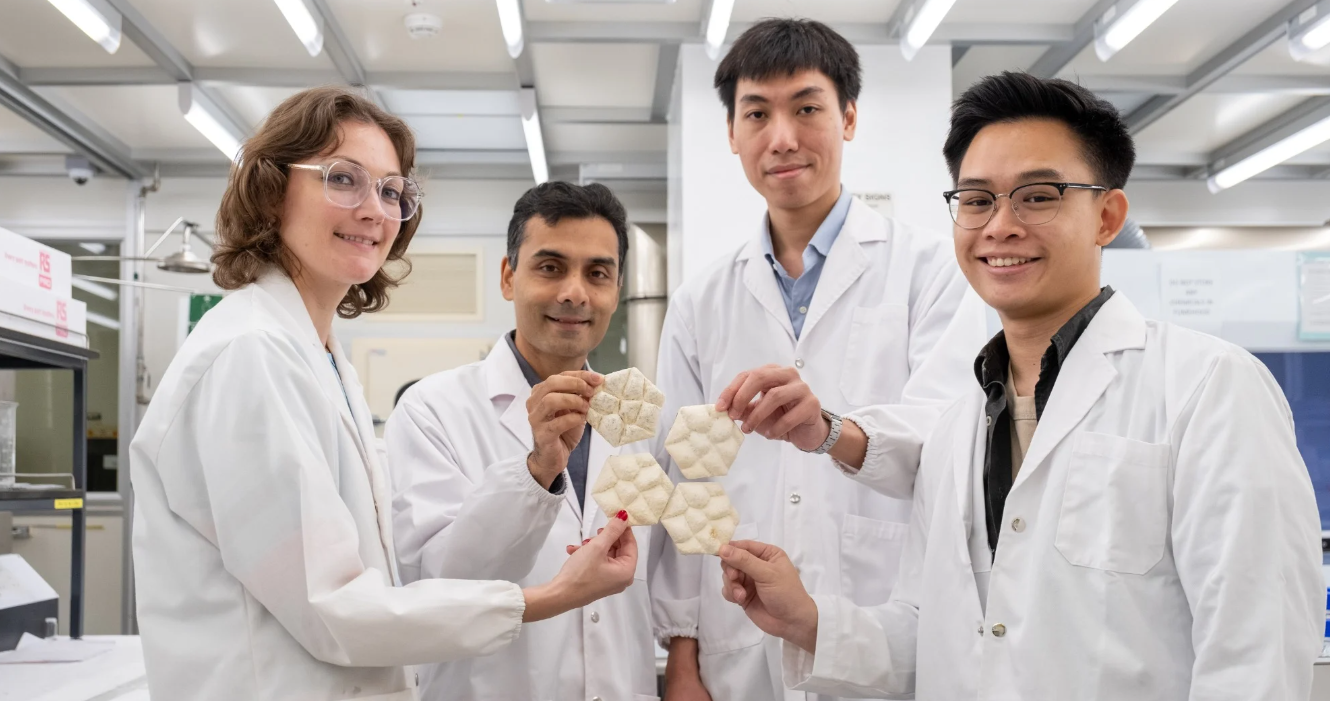SINGAPORE: A team of researchers from Nanyang Technological University (NTU) Singapore, in collaboration with local biomimicry design firm bioSEA, has unveiled a new type of environmentally friendly building tile that could one day cool buildings without the need for electricity.
The innovative “fungi tiles” are created using mycelium — the root-like structure of fungi — combined with bamboo shavings. Mycelium-bound composites have previously been shown to outperform traditional insulation materials such as expanded vermiculite and lightweight expanded clay aggregate in terms of energy efficiency.
What sets this new development apart is the addition of a textured surface inspired by nature. The researchers have engineered the tiles with a wrinkled, bumpy surface that mimics the skin of elephants, which lack sweat glands and instead regulate body temperature through heat dissipation across the crevices of their thick skin.
This biomimicry approach enhances the tiles’ thermal regulation capabilities. Lab tests confirmed that the tiles are effective at managing heat without relying on external energy sources, marking a promising step forward in passive cooling technology.
With successful proof-of-concept results in the lab, the next phase of the project involves scaling up production and conducting real-world trials on building exteriors.
If successful, these fungi-based tiles could offer a sustainable solution to reduce building temperatures in hot climates, potentially lowering dependence on air conditioning and cutting energy costs — all while tapping into the power of nature.

